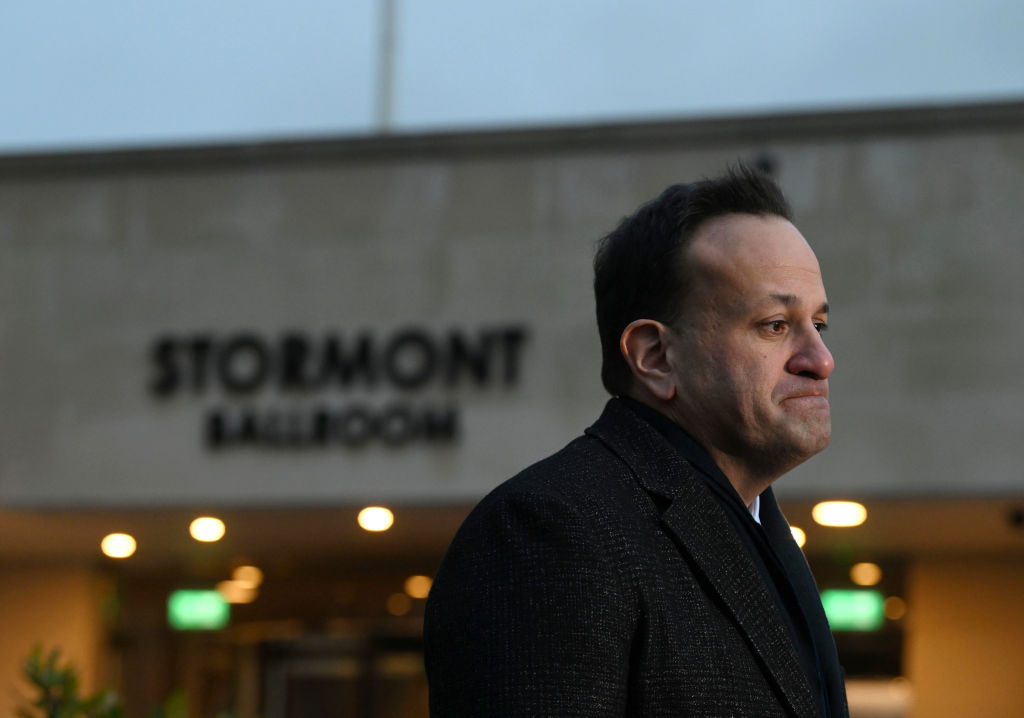Securing the means of reproduction.
England Cracks

When a nation refuses to guarantee the personal safety of its legislators, its politics are a sham.
This past February, in England, the Speaker of the House of Commons publicly admitted that normal parliamentary procedure was abandoned when members were threatened by Islamists and their leftist allies. The Scottish National Party had proposed that MPs vote in favor of or against an immediate ceasefire between Israel and Hamas, without additional conditions such as requiring the release of hostages. This presented moderate Labour MPs with a dilemma—vote, de facto, in favor of Hamas or court the wrath of the far-Left and Islamists inside England.
In response, after speaking with Labour’s Keir Starmer, Speaker Lindsay Hoyle broke the rules. To relieve the pressure on Labour, Hoyle improperly ordered that MPs first vote on a Labour amendment which called for a ceasefire conditional upon the release of hostages. Therefore, moderate Labour MPs were released from the pressures of voting on the SNP motion. Hoyle not only violated parliamentary procedure, he baldly admitted doing so in order to relieve members from violent threats: “What appears to have swayed the Speaker’s decision were warnings from Labour that its MPs feared for their safety and that of their families if they couldn’t register publicly that they had voted for an unconditional, ‘immediate humanitarian ceasefire.’”
Never before in its modern history has the House of Commons so cravenly capitulated to threats of violence against its members. The House stood up to the royal pretensions of Charles I, who would have neutered the Commons and ruled as an absolute monarch. The House as a whole may have appeased the Nazis out of fear of general war, but never from personal fear. In his memoirs, Churchill tells us—with barely disguised enthusiasm—that upon the eve of war, he and his trusty bodyguard Thompson armed themselves and stood guard overnight at Chartwell in case German agents or sympathizers targeted Churchill personally. Chamberlain and the appeasers were deluded, but sincerely believed that their policy was best for England. Any hint of personal threat or violent intimidation directed at the House would have been met with outrage and united fortitude. The Provisional Irish Republican Army not only assassinated members of the British elite such as Lord Mountbatten, but also attacked members of the House. The Conservative Party conference was hit with a sophisticated bomb in 1984, and Prime Minister Margaret Thatcher was nearly killed. But the leadership and body of the House and British state stood firm in the face of personal danger. The British continued to alternately contain and target the Provos until the latter gave up the armed struggle and, disarmed, entered politics instead.
The leftist-Islamist alliance, therefore, has succeeded where would be tyrants, Nazis, and the most proficient terrorist organization in European history all failed. the House of Commons capitulated. That the capitulation was over a procedural question is irrelevant. What was done by the Speaker cannot be undone, and presumably, since those who threatened violence achieved their goals, will be repeated in one form or another. What are the likely consequences, internally and externally, and what can we Americans learn from this event, observing, in horror and fascination, as a once great and civilized nation slowly but surely descends into barbarism?
At the strategic level, we should assume that England’s reliability and usefulness as an ally will, over time, diminish. Reflecting the nation’s political decay, the British Army is already smaller than at any time since Waterloo, and its naval and air power are shrinking, too. Now, internally, having demonstrated their tactical effectiveness and tasted victory, the leftist-Islamist alliance will advance and test the limits of its power to intimidate, veto, and shape the actions and policy of the House. England may appear to be resolute and reliable about matters which are of no interest to the alliance; the House might also have space to act when the alliance itself is split. However, when it is unified, the leftist-Islamist alliance will continue to utilize threats and intimidation to coerce the House into taking actions that the alliance supports. On issues vital to our own security, therefore, America’s heretofore most reliable ally’s fidelity and capacity for action are in decline.
At the tactical level, the leftist-Islamist coalition has demonstrated the lethal and demoralizing combination of uncontrolled mass migration, the capture of institutions, and the gradual erosion of individual liberties. Mass migration from nations with a taste for and tradition of political violence, and no experience or interest in a political culture which brackets violence in favor of reason and persuasion, has provided the Left with shock troops deployable upon request and agreement. Meanwhile, unlike in Churchill’s day, the rights of Englishmen, including members of Parliament, to arm and defend themselves, their families, and their homes have been surrendered. Finally, the Left has clearly captured London’s Metropolitan Police Force, and applies double standards of justice familiar to readers of 1984 or Animal Farm. Members of Parliament are prohibited from defending themselves, cannot hire private armed protection (for the people are disarmed), cannot rely upon the protection of a partisan state, and are thus naked before the threats of those who have always considered violence and the political as one and the same. Checkmate.
In America, the same tactics and strategy have been used on university campuses to target dissenters and opponents of the leftist-Islamist alliance. Despite their control over state legislatures and organs of state power, conservatives in the red states (with the exception of Florida) have yet to sufficiently mobilize or craft an effective strategic or tactical response. Perhaps they believe that the worst outrages of the alliance will remain confined to the wholly captured universities. That is unlikely; we should expect the alliance to use similar tactics to probe the fortitude and vulnerabilities of Congress, state legislatures, and the judiciary.
Americans, however, do retain one advantage that the English foolishly relinquished—the right to bear arms. When the state refuses to protect politicians and judges, and their families, from threats and intimidation, private organizations and supporters, if they have the will, should see to it that those politicians and judges, and their families, remain relatively safe. No single politician or judge alone can protect himself and his family from an organized campaign of intimidation if the state stands aside. Only an organized group can successfully oppose another organized group. With organization, funding, and the right to bear arms within the law, when threatened with private violence the American political elite of the center and Right will at least have the time and space to act according to their conscience, and our interests. At this point in our political history, therefore, attempts to dilute the right to bear arms should be interpreted as one leg of a tripartite strategy designed to vanquish our legitimate and legal political opposition. England has cracked, but we at least may profit from its example.
The American Mind presents a range of perspectives. Views are writers’ own and do not necessarily represent those of The Claremont Institute.
The American Mind is a publication of the Claremont Institute, a non-profit 501(c)(3) organization, dedicated to restoring the principles of the American Founding to their rightful, preeminent authority in our national life. Interested in supporting our work? Gifts to the Claremont Institute are tax-deductible.
To save American immigration policy, Trump must call for the Senate leader’s removal.
How the Biden border crisis may upend urban politics.
The British government has enabled the abuse of tens of thousands of its children.
Ireland’s leaders are inviting disaster.
Olaf Scholz appears ready to import more Muslims.






